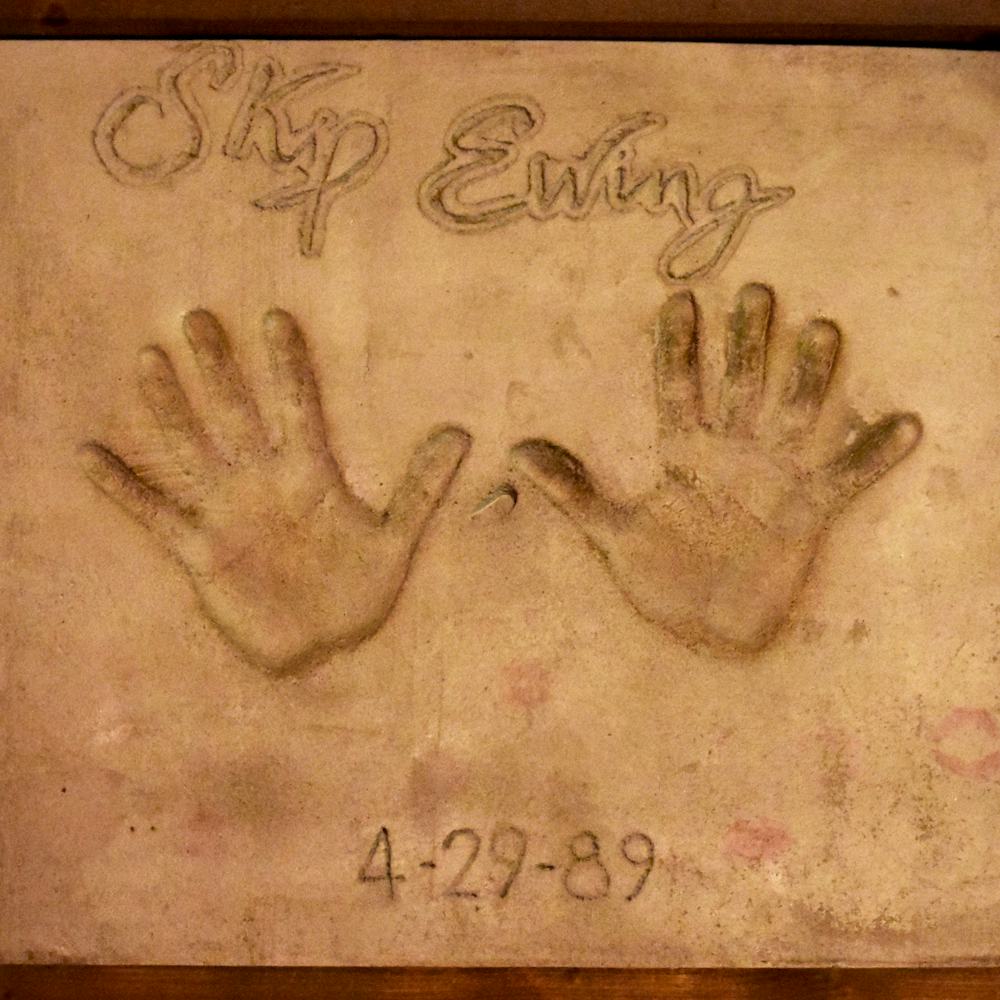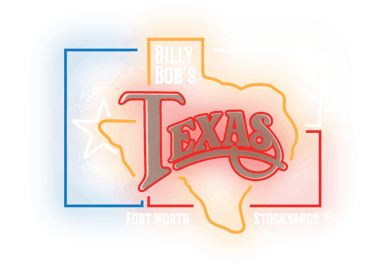
Skip Ewing
HISTORY WITH BILLY BOB’S:
Country Legend Conway Twitty died June 5, 1993, only a few weeks before his scheduled performance at Billy Bob’s on June 26. With many tickets for the show already sold, Skip Ewing performed a tribute to the late singer. Ticket holders were allowed to enjoy the for free, and were also offered a refund of their tickets. Around 50 percent of the concert-goers did not ask for a refund so they could keep their ticket as a memento.

ABOUT SKIP EWING:
For Skip Ewing, there’s a mystique about the West, a land populated by fascinating characters and shaped by unforgettable legends. Ewing’s new album, Wyoming, is as expansive as the majestic landscape of his current home and as deep as his roots in Tennessee, where he evolved from early days as an Opryland performer to one of Nashville’s most successful singer/songwriters. A native of Redlands, CA, Ewing also spent some of his formative years in South Carolina and Colorado before moving to Nashville in 1984.
Ewing has had songs recorded by Keith Urban, Zac Brown Band, George Strait, Keb Mo, Willie Nelson, and numerous others. His #1 hits include Collin Raye’s “Love, Me,” Diamond Rio’s “I Believe,” Kenny Chesney’s “You Had Me From Hello,” Clint Black’s “Something That We Do,” and Brian White’s “Rebecca Lynn,” “Someone Else’s Star,” and “I’m Not Supposed to Love You Anymore.” As outstanding as those cuts are, there’s something achingly poignant about hearing Ewing sing his own compositions. On Wyoming, Ewing is back to do just that.
After a detour that took him to new territory geographically, professionally, and spiritually, Skip Ewing has crafted his first new album in more than a decade. “I started writing the album in 2018. At the time, I didn’t know if I’d ever do another music project,” Ewing admits. “I had sold everything in Nashville, my furniture, my house. I sold everything except my instruments and some art. In the meantime, I’d been coming to Wyoming every year since the early 2000s. I fell in love with the people, the country, and the way of life, and I knew I wanted to live here.”
Though music would remain his first love, Ewing developed a passion for horses and discovered he had a gift for working with them. “I rode thousands of miles horseback,” Ewing says. “I devoted myself to horsemanship. I learn so much from them about who I am and how I could better myself. It was another part of my spiritual journey. Meditation was a big part of it, and horses became a big part of it.
Soon, Ewing found himself in a particularly creative season of his life. He had remarried, and he and his wife Linda had taken up residence in a historic cabin in Wyoming near Whiskey Basin, which provides the name of one of the album’s twelve tracks. “I picked up my guitar and started writing again, and started sharing with her,” Ewing says. Her encouragement inspired Ewing to pen the musically sweeping and candidly autobiographical love song “Wings.”
As writing for the album neared completion, Ewing sent iPhone recordings of the new material to trusted friends in Nashville, asking their advice and opinion. “It doesn’t sound anything like what I’ve done in the past,” he wrote. Everyone enthusiastically encouraged him to move forward.
“I wasn’t striving for this to be a certain kind of record, just allowing it to be what it was. I wanted to write skillfully using all the tools I had—my heart, my brain, my experience. I was unafraid, willing to speak my heart without filtering it through what somebody else told me I had to do to be successful. I want to be successful, of course I do. At this point, success means redefining myself as an artist, and reaching people meaningfully by doing so.”
Experiencing Wyoming as an album is captivating. The melodies wash over us; the lyrics transport us. We become enveloped in the lyrical fabric, and musical tapestry Ewing has woven. The collection reverberates with a wide array of emotions, tangible feelings of longing, hope, love, angst, and joy. “In my writing, I endeavor to reach across the imaginary lines between us to find common ground. Where are we the same?” Ewing asks. “Where do the lines of our understanding about life and love intersect and overlap?”
“Margolaigne” is a tender exploration of loyalty, devotion, and timeless love. “Wyoming” soars with emotion, the inner turmoil and loss we often endure on the journey to find ourselves. “Little Jenny” is a playful, tongue-in-cheek look at a much different type of affection. “Santa Fe” illuminates the inner struggle and heartbreak in the inability to trust in love. “Until It’s Gone” is a veritable cinematic contemporary western. “Cowboy Inside” is an homage totraditional country music, while lyrically celebrating the grit and gravitas of his late friend Dave Ruff.
“The Juggler,” an autobiographical metaphor from early in Ewing’s career, reaches across the proscenium between artist and listener, “Some of us we juggle on the stage, but all of us we struggle just the same.” Because of its candor and connectivity, Ewing cites it as one of his favorite songs he’s ever written. The album begins with the steam-driven power of “Railroad,” surprises again with the mystery and deeply human connection of “Petroglyph,” then closes out with the whimsical yet poignant “Unicorns.”
“There is poetry in all music, and music in all poetry. I hope listeners experience that in this project. I hope it’s beautiful and powerful for them. I hope it speaks to the miraculous and heartbreaking depths of our shared human experience.”
When Ewing began thinking of who he wanted to co-produce the album with him, only one person came to mind—Kyle Lehning. They’d met years ago when Lehning, because of Ewing’s unique style, enlisted him to play guitar on a Randy Travis session—another of Ewing’s destined-to-be #1 compositions, “If I Didn’t Have You.” Though they hadn’t spoken in years, Ewing reached out to Lehning. “In his ever-kind manner, Kyle said, ‘Alright, send it to me, but honestly, I’m only recording things I really want to record,’” Ewing recalls. “Kyle listened to it and called me back right after and said, ‘Well, when do you want to record?’”
From the moment they stepped into the studio, Ewing says the experience was better than he could have anticipated. “It felt like Kyle and I had worked together for 20 years. We had so much fun making the record and pushing the envelope,” he smiles. “I believe we captured some wonderful moments just because of the way we worked together. Kyle is brilliant. He can be technical when it’s needed, and he’s also a wonderful musician. I respect him very much. We would give each other room. If he had something, I got out of his way. If I had something, he would get out of my way. We would give each other enough space to let whatever happened happen, and yet, time after time, we’d look at each other with the same thought, the same insight, at exactly the same moment. We’d get all excited, and it was constantly fun.”
One of the most memorable moments for Ewing in the studio came from a conversation with acclaimed drummer, Eddie Bayers. “Eddie is the best drummer in the world,” Ewing enthuses. “He came to me the second day of tracking and said, ‘Skip, how much do I owe you?’ It took me by surprise, and I asked, ‘For what?’ He said, ‘For getting to play on this project. We just don’t get to play on projects that are made like this.’ That conversation with Eddie brought me great joy.”
In addition to Bayers, the tracking sessions for Wyoming featured legendary studio musicians, bassist Larry Paxton, keyboardist Steve Nathan, and electric guitarist Brent Mason. “Bryan Sutton is a phenomenal musician and one of the best guitar players I’ve ever had the privilege of playing with. What happened in the studio felt so supportive. These brilliant musicians were willing to gather together with me and be part of further inventing something, not just playing on it. I had imagined the songs, and now we were going to craft a record,” Ewing says. “Every moment on this project, we truly worked together as musicians. I love that feeling. We all did. Somehow, collectively, we had something that worked every time we showed up.
Once live music returns to venues Ewing looks forward to hitting the road and sharing his music. “I wasn’t writing for any specific genre; I was writing for the hearts and ears of the people I believed would listen. I was writing as an artist. I was out here letting myself draw from whatever musical wells I had, and whatever was in me,” Ewing explains. “I was writing imagining I was going to share it with people all over the world. That made a big difference in where I went, and it felt good to be free,” he says.
“You can hear that I’m happy. There’s so much warmth and encouragement around this record. People are genuinely excited to hear it. And when they listen, they’re excited to share it. I’m praying that leads to the immense good fortune of creating music for a living again.”
“Meaningfully connecting with people through what I write, what I say, and what I sing… that means the world to me.”
Debut Date
December 31st, 1988
# of Appearances
5





